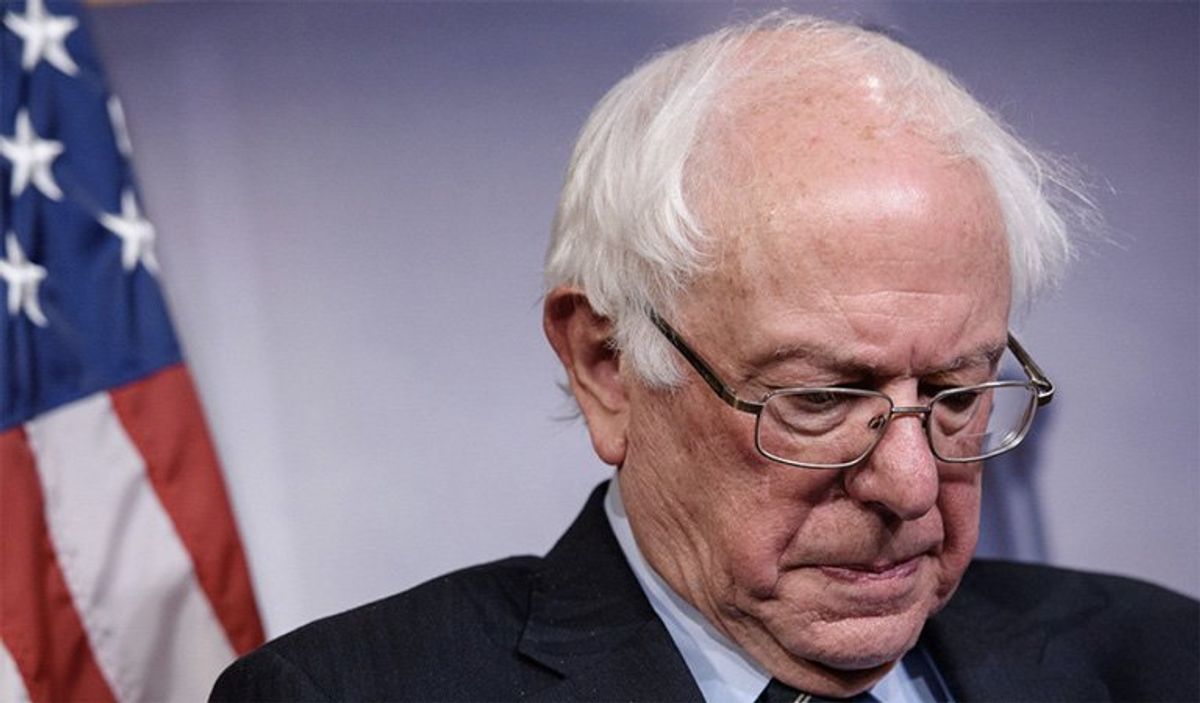
He slammed his gavel as an olive branch when a senate chamber hearing nearly erupted into a UFC octagon showdown.
When ex-MMA fighter Sen. Markwayne Mullin (R-OK) attempted to tussle with Teamsters President Sean O'Brien on Tuesday, it was Sen. Bernie Sanders (D-VT), who chairs the Health, Education, Labor and Pension committee, forced to play referee, peacemaker, and hallway monitor.
"Oh, hold it," Sanders remarked. "Is that your solution? No, no, sit down. Sit down," he told Mullin. "You're a United States Senator. Act like it."
He then tossed more cold water to end the discontent, saying: "This is a hearing. God knows the American people have enough contempt for Congress."
Sanders subsequently appeared on CNN's Anderson 360 to try to help make sense of the seeming brouhaha that had taken place in a setting that is used to polished decorum where ideas are jousted amongst colleagues but actual fists don't fly.
"It's pretty pathetic," Sanders explained. "We have a United States senator challenging a member of the panel; who is head of one of the larger unions in America, which had just negotiated a very good contract of their workers: The Teamsters."
The former presidential candidate started to rattle off the pressing issues that the country is dealing with and appalled that his hearing that was intended to help bridge the disparity of wealth in the country was overshadowed by a near rumble at the Capitol.
"This country faces so many crises," he said. "We have massive income and wealth inequality. We have a housing crises. Our health care system is collapsing, it's broken its dysfunctional -- we pay the highest prices in the world for prescription drugs. Climate change is threatening the entire existence of the planet."
"And this is what goes on in a senate hearing," he said.
He then took a shot at the fourth estate's role in prioritizing a clash between the pol and the union president on the chamber floor and cheapening the issues that the hearing was aiming to fix.
"Is the media more interested in a confrontation than why we have massive levels of incumbent wealth and inequality," he asked. "We have to ask ourselves after 50 years the average worker today is earning less in real dollars than 50 years ago while the people on top are doing phenomenally well.
"That to me is kind of an important issue that Congress should be discussing and media should be covering."




